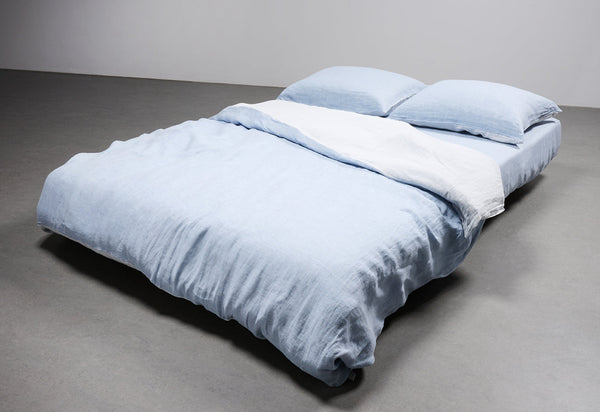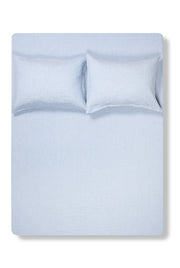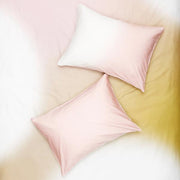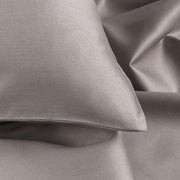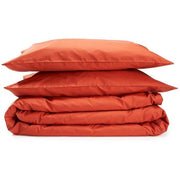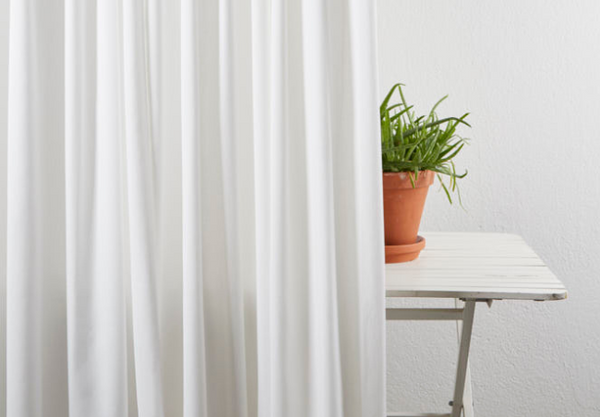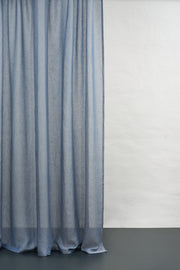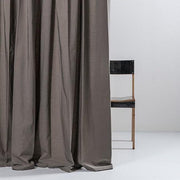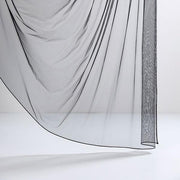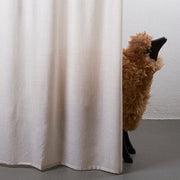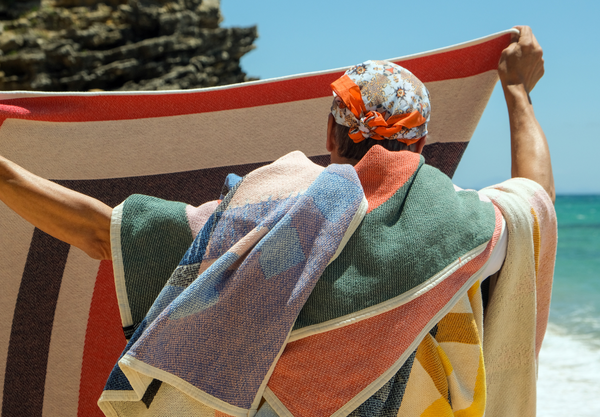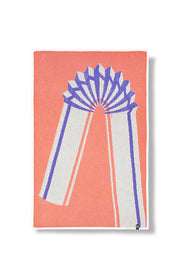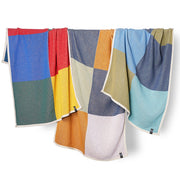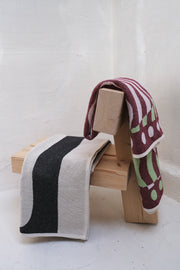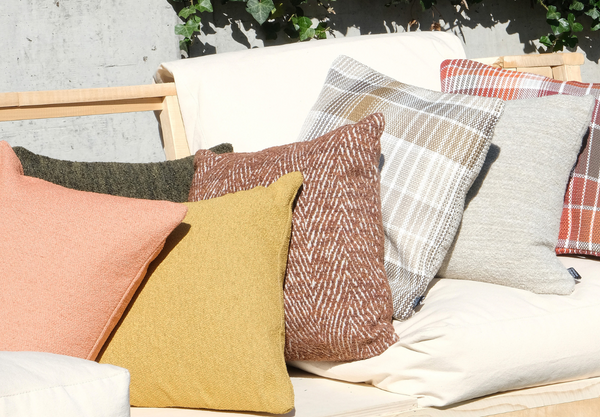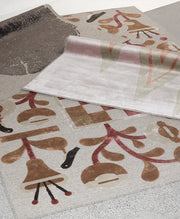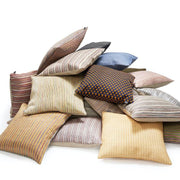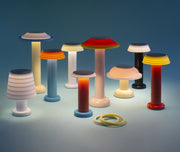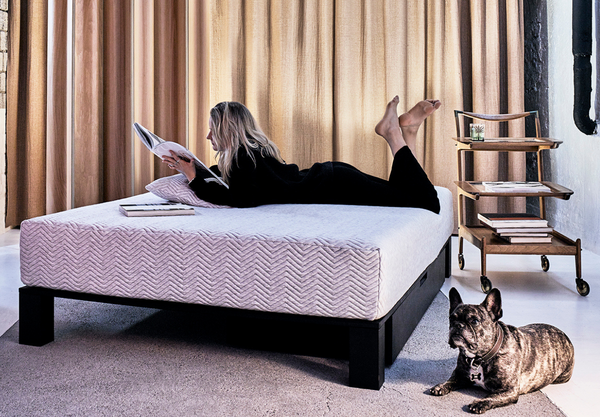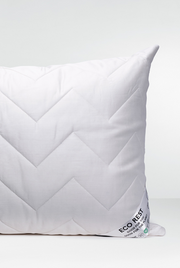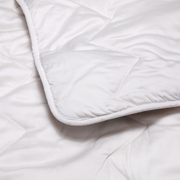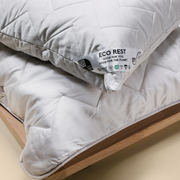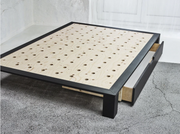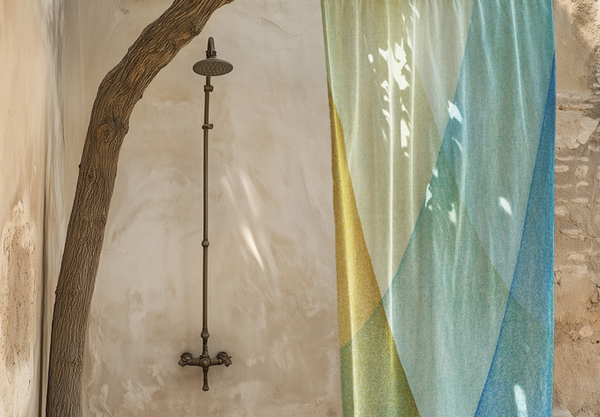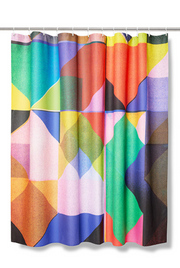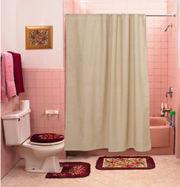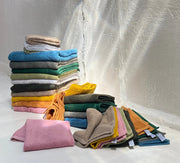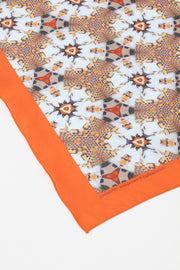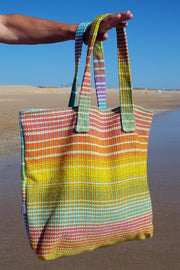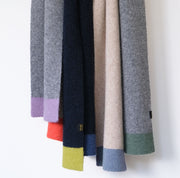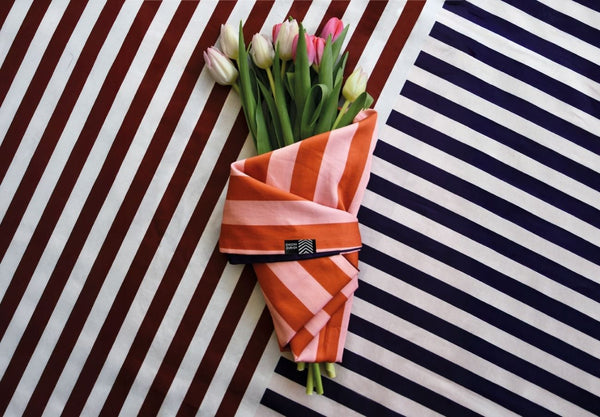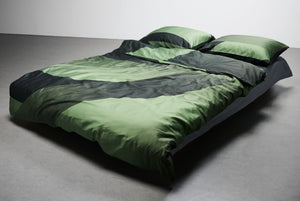"Eco Rest" Kapok and Lyocell Duvet - 100% Plant Based
The all-natural Eco Rest all-season duvet is made from purely plant-based materials - Kapok and TENCEL™ Lycocell. Made in Europe with the finest materials - Good For you, Good for the Planet.
The new Duvet "Eco Rest" represents the latest innovation from the Swiss-based home textile brand ZigZagZurich/4Spaces. Following extensive research and development to identify the optimal blend for a duvet that is a plant-based alternative to feather down and cotton-filled duvets and pillows, Eco Rest is the culmination of extensive testing of various fibers and fabric weaving techniques to deliver a solution that is both people and eco-friendly - a real vegan duvet.
TENCEL™ Lyocell, a product of Lenzing in Austria, is sourced from sustainable wood sources, harvested in a certified and controlled manner. A closed-loop manufacturing process converts wood pulp into cellulosic fibers with remarkable resource efficiency and a minimal ecological footprint. Lyocell boasts a 50% higher moisture absorption rate than cotton, releasing it rapidly. It is exceptionally soft and is ideal for allergy sufferers, and it's biodegradable.
Kapok is a 100% natural fiber derived from the Kapok tree, known for producing large seed pods containing silky Kapok fibers, often referred to as silk-cotton—the lightest natural fibers globally. Hypoallergenic and resistant to water and mold, Kapok is truly unique. These sustainable trees can grow up to 70 meters tall and live for over 200 years, requiring minimal cultivation and no irrigation. Kapok trees are recognized as a sustainable crop that can provide impoverished communities with a natural source of income while contributing to CO2 absorption and oxygen generation. Kapok fibers are both biodegradable and compostable.
Material sourcing: Lyocell is derived from sustainably managed wood pulp, while kapok fibre is harvested from the seed pods of the kapok tree, emphasising environmentally friendly and renewable sourcing practices. Processing: Lyocell undergoes a solvent spinning process to produce smooth, breathable fibres, while kapok fibres are naturally fluffy and require minimal processing, highlighting the versatility of both materials in duvet production. Filling: The Lyocell and Kapok fibres are carefully packed into the duvet shell to provide excellent insulation, breathability and thermal regulation for optimum comfort all night long. The duvet cover is also made from lyocell. Construction: The duvet shell is carefully constructed from panels of lyocell fabric for durability and softness, while the kapok filling adds plush loft and warmth for a luxurious sleeping experience. Hypoallergenic and vegan duvet: Both lyocell and kapok are naturally hypoallergenic and mould resistant, making them ideal for allergy sufferers. In addition, their vegan origins underline their cruelty-free and sustainable nature, appealing to environmentally conscious consumers. The finishing touch: Each duvet is meticulously finished by hand with quilting and stitching to hold the filling in place and enhance durability, ensuring long-lasting comfort and performance. Made locally in Europe, all materials are Oekotex-certified. The raw materials used in the duvets are also TENCEL™ Lyocell certified.
Lightweight: Kapok fibres are exceptionally light, making duvets filled with kapok feel airy and comfortable. This lightness provides a cosy sleeping experience without feeling too heavy or restrictive. Softness: Kapok fibres are naturally soft, giving the duvet a plush and luxurious feel. This softness contributes to a comfortable and soothing sleeping environment. Breathability: Kapok fibres have a hollow structure which allows excellent air circulation and breathability within the duvet. This feature helps regulate body temperature during sleep, preventing overheating and ensuring a more comfortable night's rest. Hypoallergenic: Kapok is naturally hypoallergenic, making it an excellent choice for those with allergies or sensitivities. It repels dust mites, mould and mildew, creating a healthier sleeping environment. Sustainability: Kapok is a sustainable and environmentally friendly material. The kapok tree is fast growing and requires minimal water and pesticides to thrive. Kapok fibres are also biodegradable, making it an environmentally responsible choice for bedding. Moisture absorption: Kapok fibres have natural moisture-wicking properties, absorbing excess moisture from the body and helping to keep the sleeper dry and comfortable throughout the night. Durability: Despite its light and fluffy texture, kapok is surprisingly durable and resilient. Quilts filled with kapok retain their loft and shape over time, providing long-lasting comfort and support. Overall, kapok is an excellent choice for duvets because it is light, soft, breathable, hypoallergenic, sustainable and durable. It offers a luxurious sleeping experience while being environmentally friendly and supporting healthy sleep hygiene.
Softness: Lyocell fibres are exceptionally soft and smooth, giving the duvet a luxurious feel. The fabric has a silky texture that is gentle on the skin and provides a comfortable and cosy sleeping experience. Moisture absorption: Lyocell has excellent moisture-wicking properties, wicking moisture away from the body and keeping the sleeper dry and comfortable throughout the night. This helps to regulate body temperature, preventing overheating and promoting a more restful sleep. Breathability: Lyocell fibres are highly breathable, allowing excellent air circulation within the duvet. This breathability helps to prevent heat and moisture build-up, creating a cooler and more comfortable sleeping environment. Hypoallergenic: Lyocell is naturally hypoallergenic and resistant to dust mites, mould and mildew. It is an excellent choice for those with allergies or sensitivities, helping to create a cleaner and healthier sleeping environment. Sustainability: Lyocell is made from sustainably sourced wood pulp, typically from eucalyptus or beech trees. The manufacturing process is environmentally friendly, using a closed loop system that recycles water and solvents. In addition, Lyocell fibres are biodegradable, making it an environmentally responsible choice for bedding. Durability: Despite its soft and delicate feel, lyocell is surprisingly durable and resilient. Lyocell duvets retain their shape and integrity over time, providing long-lasting comfort and support. Easy care: Lyocell is easy to care for and is usually machine washable. The fabric resists wrinkling and shrinkage, making it a practical choice for bedding that requires minimal maintenance. Overall, Lyocell is an excellent choice for duvets due to its softness, moisture wicking, breathability, hypoallergenic nature, sustainability, durability and ease of care. It offers a luxurious sleeping experience while being environmentally friendly and supporting healthy sleep hygiene.
Thermo-regulating excellence: Lyocell duvets have exceptional thermo-regulating properties, wicking moisture up to 50% more effectively than cotton. This superior moisture management ensures optimum humidity levels for a deeper and more restful sleep. Kapok, with its inherent breathability, complements this feature, allowing for improved temperature regulation throughout the night. Breathable innovation: The fibre structure of both Lyocell and Kapok allows for unparalleled breathability, surpassing that of traditional bedding materials. This advanced breathability optimises airflow, preventing the build-up of heat and moisture. As a result, sleep disturbances caused by discomfort from overheating are minimised, ensuring uninterrupted rest. Hypoallergenic properties: Lyocell and Kapok duvets are inherently hypoallergenic, making them an ideal choice for those prone to allergies or sensitivities. Lyocell's smooth surface inhibits the growth of allergens, while kapok's natural resistance to mould and mildew ensures a clean and allergen-free sleeping environment. This combination provides relief for allergy sufferers and promotes healthier and more restful sleep. Sustainable ingenuity: From an environmental perspective, Lyocell and Kapok are sustainable alternatives to traditional bedding materials. Lyocell, made from renewable wood pulp using environmentally friendly processes, offers a biodegradable and environmentally conscious option. Similarly, kapok fibres, derived from the seeds of the kapok tree, require minimal processing and have a low environmental impact, in line with eco-friendly principles. Textile engineering: The intricate structure of lyocell fibres, characterised by their smooth surface and uniform dimensions, contributes to the exceptional softness and comfort of lyocell duvets. Similarly, Kapok fibres have inherent loft and resilience, giving a plush and luxurious feel. Together, these textile marvels ensure a blissful and indulgent sleep experience. Vegan-friendly duvet: For those committed to a vegan lifestyle, both lyocell and kapok duvets offer an ethically sound bedding choice. Lyocell is made from plant-based cellulose fibres, making it entirely plant-based and suitable for vegans. Similarly, kapok fibres are harvested from the seed pods of the kapok tree, with no animal-derived components involved in the process. By choosing Lyocell and Kapok duvets, vegans can enjoy luxurious comfort without compromising their ethical values.
Check the care label: Check the care label for specific instructions before washing your Eco Rest Lyocell Kapok duvet. Wash the duvet on a wool programme not exceeding 40 degrees and on the lowest spin speed - maximum 400. Pre-treat stains: If there are stains on the duvet, pre-treat with a mild stain remover or detergent. Gently dab the stained area and allow to soak in for a few minutes before washing. Use a delicates cycle: Machine wash the quilt on a delicates cycle in cold or lukewarm water. Avoid using hot water as this can damage the fibres and cause shrinkage. Mild detergent: Use a mild detergent suitable for delicate fabrics. Avoid using bleach or harsh chemicals. These can weaken the fibres and affect the integrity of the duvet. Air dry or tumble dry on a low heat: Air drying is the gentlest way to dry Lyocell Kapok duvets. Lay the duvet flat on a drying rack or outdoor clothesline, making sure it is spread out evenly to promote airflow. Alternatively, you can tumble dry on a low heat. Avoid high heat as this can damage the fibres. Fluff and turn: Once the quilt is completely dry, fluff gently to redistribute the filling. If necessary, turn the quilt regularly to maintain its loft and shape. Professional cleaning: If the quilt is heavily soiled or stained, consider professional cleaning.
